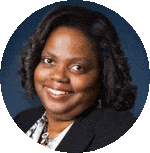Nearly four years ago, I was honored to receive two speaking invitations. One was from Wholebeing Institute’s Embodied Positive Psychology Summit, where I presented how I integrate positive psychology and education into our education/training, empowerment, leadership, and organizing practices at BRIDGE. The other was from Hevreh’s “Berkshire Speaks,” where I was invited to share remarks about my own personal leadership journey. I recently revisited the latter speech, as I realized it may be one of the only times that I’ve spoken at length about why I use positive psychology every day in my equity and justice work as a consultant and coach.
In that speech, back when we could all meet in person, I shared: “Yes, this personal and cultural work around racial and social justice is challenging. We will encounter barriers and fail, sometimes miserably, or see things we don’t want to see. What will we learn? How will we rebuild, work through, repair and restore? How will we do something different next time? As we advocate for and educate others, we must start with our own commitment to ongoing self-education. It takes the practice of an athlete or a pianist to work for justice. Self-care, training, education, and practice in cultural humility. The idea is you just begin practicing it, and it takes grit—another positive psychology framework from Angela Duckworth. It looks like all of us learning the cultural context and real history behind any one disparity or point of difference. We become aware of the social identities and biases we possess, whether we chose them or not. We consider the impact that may have on others.”
Positive psychology is useful in so many ways and for so many different purposes, but it is essential when it comes to inspiring and then stewarding transformational change in workplace and community cultures. How do we embody growth mindset, resilience, and grit in the work for equity and justice? In this field, there are two essential (and crucial) aspects: 1) love and 2) understanding the true definition of happiness as a state of being.
Knowing your own character strengths and your network’s diversity of character strengths (see VIA Institute’s Character Strengths work) and making use of them for success is also essential. (For example, my top four character strengths are Creativity, Judgment, Perspective, and Kindness. Can you imagine if we all led by naming our individual character strengths? How different the world would be!)
- Love as essential—motivator and purpose-driven
- Understanding the true definition of happiness as a state of being
- Welcoming authenticity—storytelling
- Character strengths
- Mindfulness—pausing
- Ideal Self
Without positive psychology, we can all too easily get stuck in all that is not working in the world. We can focus on negative emotions and ultimately get stymied. But, as I learned from WBI co-founder Tal Ben-Shahar, “When we appreciate the good, the good appreciates.”
In our cultural groups and as a nation, I truly believe that we have the fortitude to deconstruct and build anew. We need to build from that strength. We will have to learn from our mistakes with a discerning eye (resilience) and we will need to practice self-care and co-create a shared vision for the future. We will have to know why we are doing what we are doing (see Simon Sinek’s work), and we will have to use the grit of deliberate practice (again, see Angela Duckworth’s work) to keep going.
- I apply Barbara Frederickson’s concept of “broaden and build” to community organizing.
- In my coaching work with teams, I explain that starting with what is already working (appreciative inquiry) is the critical missing link for any cultural change work that needs to take place.
- I personally practice authentic and adaptive leadership in my own leadership work in the world (and encourage the same in my colleagues).
Why appreciative inquiry? We can make assumptions and presume negative intentions in our working relationships and communities—and always, the -isms are at play—but using appreciative inquiry gets us to ask the right questions. When we learn to ask the right questions, we find the answers that illuminate a new pathway forward. And in the meantime, we will have practiced listening and paying attention, thereby building trust and relationship.
Why authentic and adaptive leadership? When I graduated in 2014 from WBI’s CiPP program at Kripalu, my capstone project was twofold: first, designing a plan to step into my own authentic leadership to evolve and then, beginning to work toward my ideal future self. In other words, jumping in and “throwing my backpack over the wall” when it came to doing work that I really believed in. I also refined BRIDGE’s summer program by adding the science behind our approach to providing children and youth with positive psychology education. I wanted to center the character strengths as a way of thinking about internal diversity and intersectionality. This is in stark contrast to the societal diversity that is imposed upon us since youth. The question we teach youth to ask is this: How we can learn to leverage both the internal diversity and external identity once we know the identities and biases that form? At that time, my oldest child had also just finished their degree at Lesley University in holistic psychology and expressive arts therapy, so we got to work reworking the curriculum for this youth program. We officially renamed it “The Happiness Toolbox.”
Now it’s 2020, and I’ve been working at the intersection of positive psychology and equity and justice for more than six years. As a coach, I continue to focus on growth mindset, appreciative inquiry, and Character Strengths. At BRIDGE, I have worked for many years with my team to design our Women to Women program with mindfulness, gratitude practices, and character strengths at the core. We’ve continued to design our Happiness Toolbox program to specifically leverage character strengths as the foundation of our diversity, cultural awareness, and leadership development work in teaching youth and their adult counterparts, educators, and parents.
Most recently, with New Pathways Talks and Labs, I intentionally included Character Strengths and resilience as core skills to continue equity and justice work. This summer I’m happy to have deepened my partnership with WBI’s Maria Sirois by providing resilience skill-building to my clients, a continuation of our ongoing collaborations. I find it affirming that the VIA Institute has also reached out to me about republishing my piece, “Bouncing Forward, Not Bouncing Back: Adapting with Resilience,” a piece that was also picked up by Partners Global.
These are all critical concepts to impart as we build new pathways out of COVID-19 and move on to better practices, norms, and relationships in the days, weeks, months, and years ahead.
My training and leadership in positive psychology has provided me with an endless foundation to pull from my ancestors’ strengths. The science of positive psychology has been useful to me for my own buoying. Positive psychology supports me as I approach this relentless equity work with hope and non-judgment. Knowing that we all share strengths helps me speak to our common humanity even when moving through the most difficult questions. Most importantly, it serves as the way forward while we transform ourselves, our communities, and our workplaces. Whether you are a client, workplace leader, essential staff member, parent, or young person, positive psychology frameworks provide excellent tools with which to wade through the transformative work that is required of us all.
So, as we emerge from this moment we are in and build new pathways forward, I leave you with this question: How might we co-create a new and just future? I find myself returning to this same question again and again.

Gwendolyn VanSant, a graduate of WBI’s Certificate in Positive Psychology, is an experienced organizational change consultant and coach who works at the intersection of diversity leadership, equity and inclusion, and strategic planning. She is the CEO and Founding Director of BRIDGE and the Equity and Inclusion Team Lead at Changemaker Strategies. A skilled community organizer, Gwendolyn is also a well-recognized thought leader on racial justice and reparations. Gwendolyn currently serves as the Vice Chair of the Town of Great Barrington W. E. B. Du Bois Legacy Committee. She is on the Advisory Board of Greylock Federal Credit Union’s Community Development Financial Institution (CDFI) program, and she is a board member of the Women’s Fund of Western Massachusetts, UU Mass Action Network, Shakespeare & Company, and Women’s Fund Of Western Massachusetts. A longtime activist, Gwendolyn has founded several initiatives based on the principles of equity and justice, the inherent dignity and worth of individuals, and our interconnected web of humanity.



I am working with educators to use film with their middle school students. Currently Social and Emotional Learning (SEL) and Equity are the popular “buzz” terms. I am stumped how to present that Positive Psychology encompasses both SEL and Equity and should NOT be considered a separate entity. Suggestions to clarify and examples would be GREATLY appreciated. Thank YOU!
CIPP3